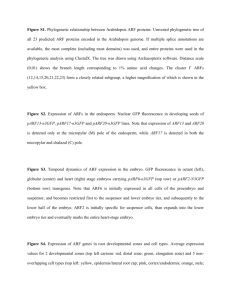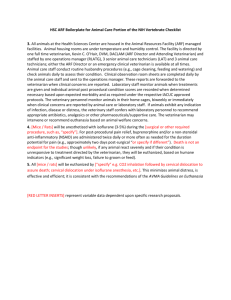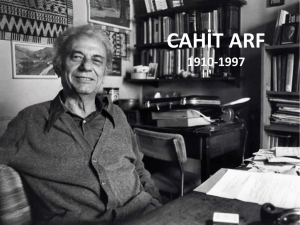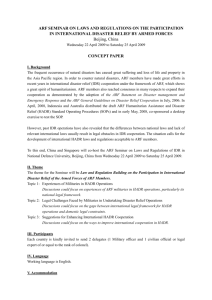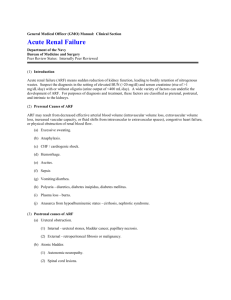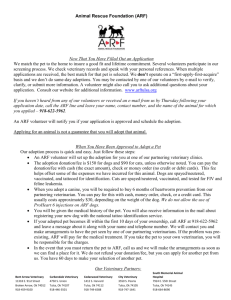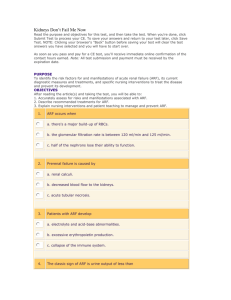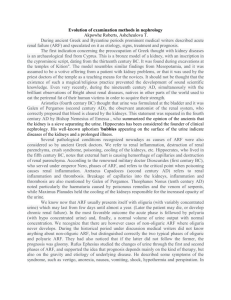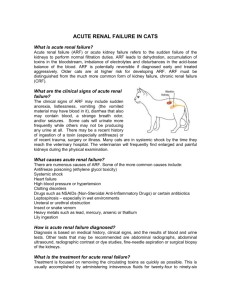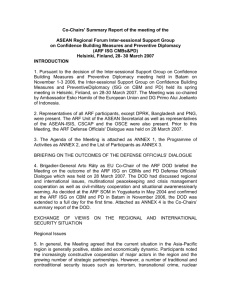Annex 12 - Draft Co-Chairs' Summary Report
advertisement
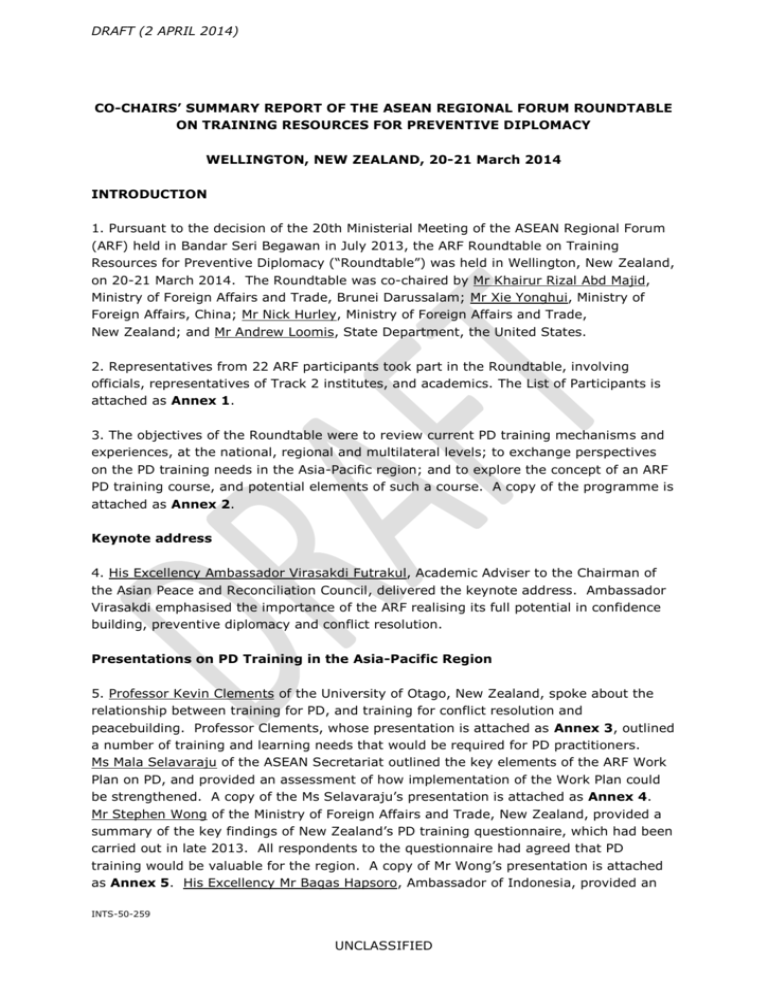
DRAFT (2 APRIL 2014) CO-CHAIRS’ SUMMARY REPORT OF THE ASEAN REGIONAL FORUM ROUNDTABLE ON TRAINING RESOURCES FOR PREVENTIVE DIPLOMACY WELLINGTON, NEW ZEALAND, 20-21 March 2014 INTRODUCTION 1. Pursuant to the decision of the 20th Ministerial Meeting of the ASEAN Regional Forum (ARF) held in Bandar Seri Begawan in July 2013, the ARF Roundtable on Training Resources for Preventive Diplomacy (“Roundtable”) was held in Wellington, New Zealand, on 20-21 March 2014. The Roundtable was co-chaired by Mr Khairur Rizal Abd Majid, Ministry of Foreign Affairs and Trade, Brunei Darussalam; Mr Xie Yonghui, Ministry of Foreign Affairs, China; Mr Nick Hurley, Ministry of Foreign Affairs and Trade, New Zealand; and Mr Andrew Loomis, State Department, the United States. 2. Representatives from 22 ARF participants took part in the Roundtable, involving officials, representatives of Track 2 institutes, and academics. The List of Participants is attached as Annex 1. 3. The objectives of the Roundtable were to review current PD training mechanisms and experiences, at the national, regional and multilateral levels; to exchange perspectives on the PD training needs in the Asia-Pacific region; and to explore the concept of an ARF PD training course, and potential elements of such a course. A copy of the programme is attached as Annex 2. Keynote address 4. His Excellency Ambassador Virasakdi Futrakul, Academic Adviser to the Chairman of the Asian Peace and Reconciliation Council, delivered the keynote address. Ambassador Virasakdi emphasised the importance of the ARF realising its full potential in confidence building, preventive diplomacy and conflict resolution. Presentations on PD Training in the Asia-Pacific Region 5. Professor Kevin Clements of the University of Otago, New Zealand, spoke about the relationship between training for PD, and training for conflict resolution and peacebuilding. Professor Clements, whose presentation is attached as Annex 3, outlined a number of training and learning needs that would be required for PD practitioners. Ms Mala Selavaraju of the ASEAN Secretariat outlined the key elements of the ARF Work Plan on PD, and provided an assessment of how implementation of the Work Plan could be strengthened. A copy of the Ms Selavaraju’s presentation is attached as Annex 4. Mr Stephen Wong of the Ministry of Foreign Affairs and Trade, New Zealand, provided a summary of the key findings of New Zealand’s PD training questionnaire, which had been carried out in late 2013. All respondents to the questionnaire had agreed that PD training would be valuable for the region. A copy of Mr Wong’s presentation is attached as Annex 5. His Excellency Mr Bagas Hapsoro, Ambassador of Indonesia, provided an INTS-50-259 UNCLASSIFIED UNCLASSIFIED Page 2 of 4 ASEAN perspective on PD, and drew attention to the potential role that the ASEAN Institute for Peace and Reconciliation (AIPR) could play on PD in the region. A copy of Ambassador Hapsoro’s presentation is attached as Annex 6. Mr Eric Friberg of the UN Office of the High Commissioner for Human Rights presented on the UN’s experiences with PD training, and in this regard referenced a range of PD training courses that were being run by UNITAR. Mr Friberg’s presentation is attached as Annex 7. 6. A panel discussion was held to explore PD training needs particular to the Asia Pacific Region. The panel comprised Dr Nicholas Farrelly, Australian National University; Dr Wei Ling, China Foreign Affairs University; Mr Benjamin Ho, Nanyang Technological University (NTU), Singapore; and Mr Jeffrey Helsing, US Institute of Peace. The presentations were wide-ranging, and raised a number of issues, including: the need to be creative in the delivery of PD training; the reality that there is no one size fits all approach to PD; the challenge of striking a balance between non-interference and PD that might be regarded as intervention in domestic affairs; the importance of using examples and best practices of PD from the Asia-Pacific region in any training; and the value of drawing in a range of stakeholders to develop local solutions to local problems. Dr Ho’s presentation is attached as Annex 8, and Dr Farrelly’s presentation is attached as Annex 9. A summation of discussions on Day 1 was provided by Ms Rahimah Abdulrahim of the Habibie Centre, Indonesia. Roundtable Discussion: Key Points 7. The Roundtable which followed the presentations provided an opportunity for participants to exchange views on next steps for PD training in the ARF. Discussion centred on a potential PD training course for the ARF, with views expressed on what its objectives might be, the shape of such a course, and how it might be delivered. 8. Participants agreed on the value of establishing an ARF training programme on PD, which is tailored to the needs and characteristics of the Asia Pacific region. Such training would help to build the capacity, skills and capabilities of ARF diplomats. 9. Participants suggested that the curriculum of such a training programme would be developed by a group of experts, potentially through a workshop, which would be hosted by an ARF member. 10. Participants emphasised the benefits of ARF training linking into existing international and regional institutions already involved in delivering PD training, including the UN, USIP and OSCE. In some cases, it might be sensible to adapt existing training provided to the ARF context. 11. Participants acknowledged the importance of drawing in the expertise and experience from Track 2, NGOs and other relevant stakeholders in any training course, but suggested that the training should be targeted to officials. INTS-50-259 UNCLASSIFIED UNCLASSIFIED Page 3 of 4 12. Participants agreed that PD training courses should include an evaluation element, which would be submitted to the ARF ISG on CBMs and PD with the view to seeking feedback on how to further refine and improve future PD training courses. 13. Participants acknowledged the value of “training the trainers” on PD, which would facilitate a wider expansion of PD training in the region. 14. Participants noted the offer by a representative of the ASEAN Institute for Peace and Reconciliation (AIPR) that the AIPR serve as a networking centre for PD resources for the ARF. 15. Participants welcomed the offers by: o o o o China and [an ASEAN country] to co-chair an ARF Training Course on Preventive Diplomacy. Being a pilot project, participants suggested that the recommendations of the Roundtable, as well as further ideas from ARF members, feed into the preparations for China’s proposed course. Brunei and the European Union to co-chair a proposed Preventive Diplomacy and Mediation Training Event and Regional Lessons Learned Workshop; New Zealand and [an ASEAN country] to co-chair a proposed Track 1.5 Symposium on Preventive Diplomacy in the Asia-Pacific region; and Thailand and Indonesia to host future PD training-related activities. Recommendations for the ARF 16. The Roundtable agreed that the ARF should establish PD training that is tailored to the Asia Pacific region. Participants further agreed to submit the following suggestions/recommendations to the ARF ISG on Preventive Diplomacy and Confidence Building Measures, as a basis for further discussion on the scope, priorities and practical operation of ARF training on PD: i. A key objective of an ARF training course on PD would be to enable ARF participants to develop a critical understanding of the essential skills, premises and goals of PD within an ARF context. ii. The training would be both knowledge-based and skills-based, building from concrete learning objectives. As a potential starting point, trainees will learn to, inter alia: Apply early warning tools and conflict analysis skills; Develop effective monitoring and fact finding practices; Work at local, national and regional levels and engage with multiple actors; Build trust; Develop conflict sensitivity and empathy; Work collaboratively and in consultation with others; and Incorporate lessons learned and best practices from ASEAN experiences and apply them to diplomatic efforts and mentor others. INTS-50-259 UNCLASSIFIED UNCLASSIFIED Page 4 of 4 iii. The curriculum of a PD training course would be developed via a separate ARF workshop (or process) convened prior to China’s PD training course, and draw inputs from a group of experts that would include, among other institutions, UNITAR, the ASEAN Institute of Peace and Reconciliation (potential future convenor of PD training for the ARF), USIP, the OSCE and SCO. Advice and recommendations from the group of experts would be submitted to the co-chairs of China’s PD training course, and subsequent courses. a. The curriculum for any future training should be standardised to the extent possible, but would also need to be flexible and take into account the capacity building needs of the training host. b. Case studies used for any training would ideally be drawn from the AsiaPacific region, covering success stories where PD has worked. iv. The training would be mainly targeted to junior/mid-level diplomats, as well as officials from defence and security ministries. However, the level of participants would depend on the course itself. The possibility of including relevant NGOs/civil society representatives as trainees could also be considered. a. Teachers and lecturers would include senior officials involved in PD, regional and multilateral organisations and ARF Expert and Eminent Persons. b. The training would be run over 1-2 weeks. c. PD training should also utilise information sharing tools and technology where possible. v. An evaluation of China’s proposed pilot training course would be conducted following its conclusion, and presented to the ARF ISG for further consideration and feedback. vi. The ARF ISG should include a standing agenda item covering PD training, to help facilitate discussion on future PD training courses. vii. The ARF should develop a prospective roadmap for future PD trainings to ensure continued momentum on PD for the Asia-Pacific region. The training would be hosted by ARF members in a voluntary capacity, ideally on an annual or semiannual basis to ensure sustainability and consistency. viii. Funding of future training courses will need to be further considered, taking into account available resources. INTS-50-259 UNCLASSIFIED
